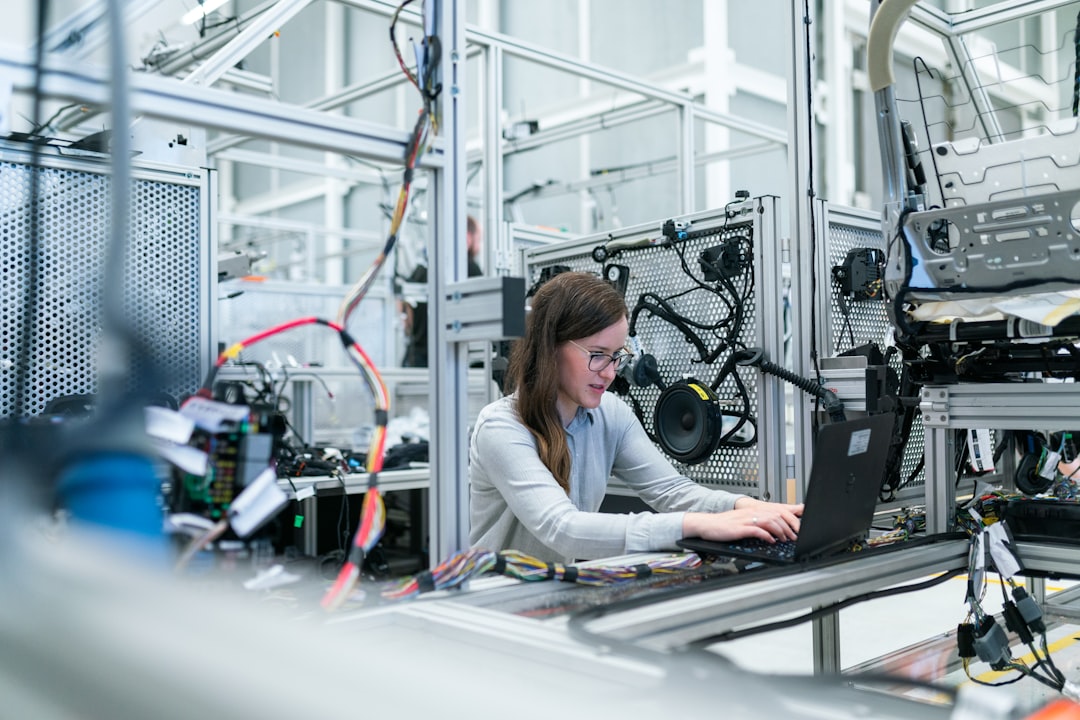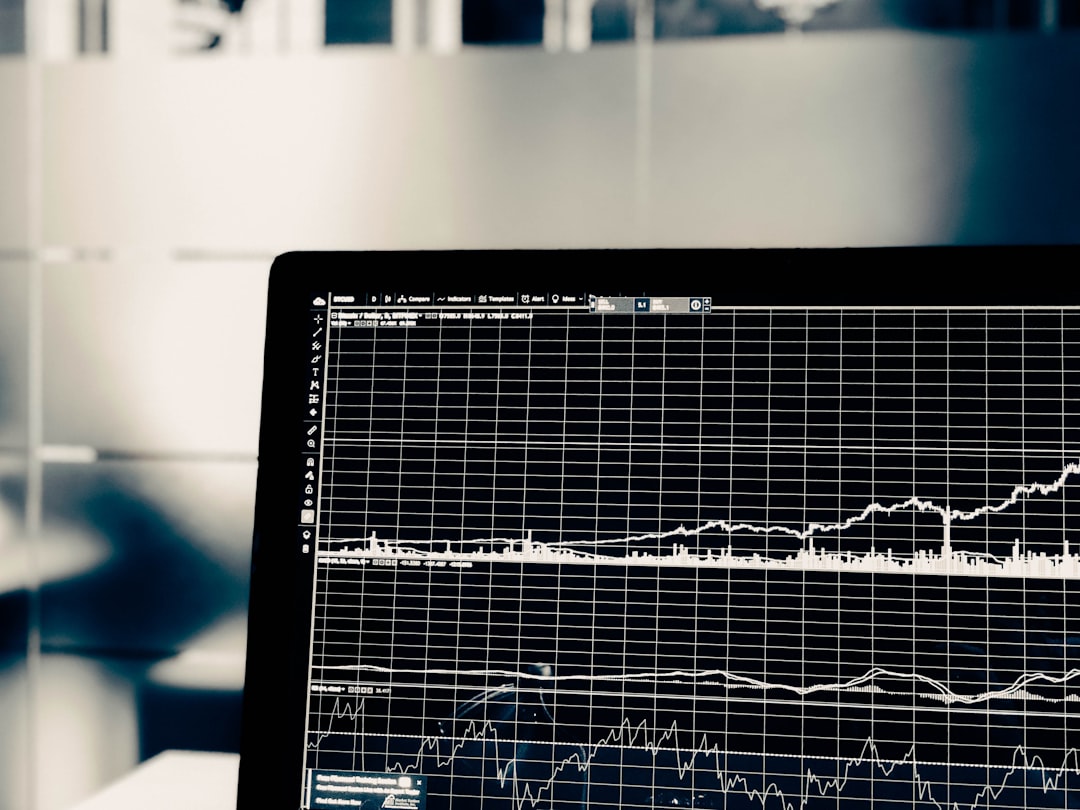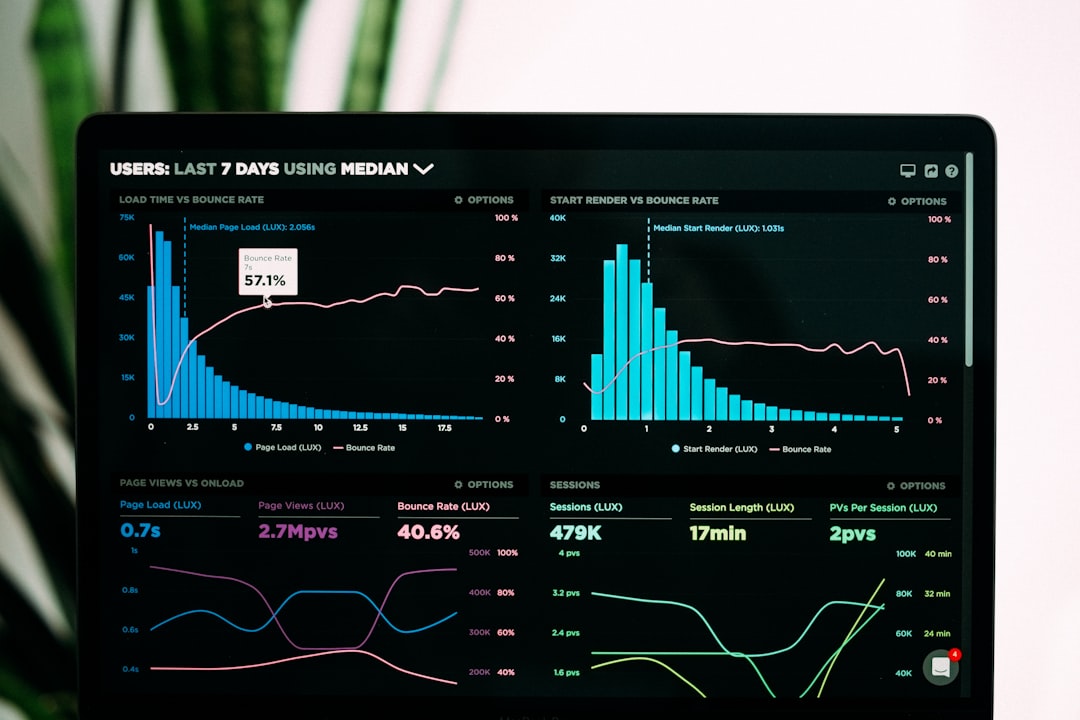Unlock encrypted content
Please enter your SSCE key to initiate on-the-fly decryption.
Decryption key: (Click cancel if you don't have the key)
Copied link to clipboard.
This feature is unavailable for free accounts. Upgrade now and enjoy all Premium benefits.
Go Premium!
This feature is unavailable for free accounts. Upgrade now and enjoy all Premium benefits.
Go Premium!
Please open this page in browser ( Google Chrome or Safari ) to use this feature.
Open In Browser
Real-Time System Monitoring: Enhancing Efficiency and Security in the Digital Age.
Random related video for this blog.
Copied share link to clipboard.
The Importance of Real-Time System Monitoring
In today's fast-paced digital landscape, organizations and individuals rely heavily on technology to streamline processes and enhance productivity. Real-time system monitoring is a crucial aspect of this, as it provides a comprehensive view of the health and performance of various systems and applications. By continuously monitoring key metrics and promptly detecting any issues or anomalies, real-time system monitoring ensures that potential problems are identified and addressed before they escalate into major disruptions.Efficiency and Productivity
Real-time system monitoring enables organizations to optimize their operations by identifying bottlenecks, performance gaps, and resource utilization inefficiencies. By monitoring critical metrics such as CPU usage, memory consumption, and network traffic, businesses can identify areas that require optimization and take proactive measures to enhance efficiency. For example, if a particular application is consuming excessive resources, real-time monitoring can alert system administrators, enabling them to investigate and resolve the issue promptly. This proactive approach helps organizations avoid costly downtime and ensures that resources are utilized optimally, leading to improved productivity.Enhanced Security and Threat Detection
Real-time system monitoring is also vital for maintaining the security and integrity of digital systems. By continuously monitoring network traffic, access logs, and system events, organizations can quickly detect any suspicious activities or potential security breaches. For instance, if a system administrator notices a sudden surge in failed login attempts or unusual network traffic patterns, they can take immediate action to investigate and mitigate potential threats. This proactive approach to security helps organizations prevent unauthorized access, data breaches, and other cyber threats, safeguarding sensitive information and ensuring business continuity. Furthermore, real-time system monitoring plays a crucial role in identifying and mitigating vulnerabilities in software and systems. By monitoring for software updates, patches, and security advisories, organizations can promptly address any known vulnerabilities and protect theirsystems from potential exploits. This proactive approach to security helps organizations stay one step ahead of cybercriminals and ensures a robust defense against emerging threats.
Conclusion
Real-time system monitoring is an essential practice for organizations and individuals alike, providing valuable insights into the performance, efficiency, and security of digital systems. By continuously monitoring critical metrics, organizations can optimize their operations, enhance productivity, and identify potential issues before they escalate. Additionally, real-time monitoring helps organizations maintain the security and integrity of their systems by promptly detecting and mitigating threats. Embracing real-time system monitoring is a proactive step towards ensuring the smooth functioning of digital infrastructure and staying ahead in today's interconnected world.Frequently Asked Questions (FAQs)
Question: How does real-time system monitoring improve efficiency?
Answer:
Real-time system monitoring helps identify performance gaps, resource utilization inefficiencies, and bottlenecks, allowing organizations to optimize operations and enhance efficiency.
Question: What role does real-time system monitoring play in security?
Answer:
Real-time system monitoring enables the detection of suspicious activities, potential security breaches, and vulnerabilities, allowing organizations to take proactive measures to protect their systems and data.
Question: How does real-time system monitoring contribute to productivity?
Answer:
Real-time system monitoring ensures that potential issues are detected and addressed promptly, minimizing downtime and optimizing resource utilization, leading to improved productivity.
Question: How can real-time system monitoring benefit individuals?
Answer:
Real-time system monitoring can help individuals identify and resolve performance issues with their devices, ensuring optimal functionality and enhancing user experience.
Case Studies Case Study 1: Company XYZ's Improved Efficiency Company XYZ, a leading e-commerce platform, implemented real-time system monitoring to optimize their website's performance. By monitoring key metrics such as page load times, server response times, and database query performance, they were able to identify and resolve bottlenecks, resulting in a significant improvement in website speed and overall user experience. This optimization led to increased customer satisfaction and higher conversion rates, ultimately boosting revenue for Company XYZ. Case Study 2: Enhanced Security for Organization ABC Organization ABC, a financial services firm, implemented real-time system monitoring to strengthen their cybersecurity defenses. By continuously monitoring network traffic and system logs, they detected a series of suspicious login attempts originating from an unknown IP address. Prompt action was taken to block the IP address and reinforce security measures, preventing a potential data breach. Real-time system monitoring helped Organization ABC maintain the confidentiality and integrity of sensitive client information, ensuring trust and reliability with their customers. Case Study 3: Personal Device Optimization for User PQR User PQR, a freelance photographer, utilized real-time system monitoring to optimize the performance of their editing workstation. By monitoring resource utilization, including CPU, memory, and disk usage, they were able to identify and resolve performance bottlenecks. This optimization resulted in faster rendering times, smoother editing workflows, and improved overall productivity for User PQR.
By Amelia Isabella
Email: [email protected]
Related
Efficient File Sharing, Data Storage, and Synchronization with Blockchain and...
June 3, 2023
Read More
Protecting Sensitive Data: Best Practices for File Access Control, Encryption,...
June 3, 2023
Read More
Popular
Latest
The Future of Digital Transformation: Exploring Smart Homes, Efficient File...
November 30, 2025
Read More
Exploring the Benefits of Cloud Storage and Innovative Technologies in...
November 26, 2025
Read More
The Future of Technology: Exploring Biohacking, Space Tourism, and Digital...
November 23, 2025
Read More
The Future of File Sharing: Streamlined Workflows for Photographers and...
November 19, 2025
Read More
Exploring the Intersection of Technology: From Cybersecurity to Augmented Reality...
November 16, 2025
Read More
The Future of File Management: Embracing Edge Computing and Efficient...
November 12, 2025
Read More
The Future of File Sharing: Exploring User-Friendly Solutions and Data...
November 5, 2025
Read More
The Future of Cloud Storage: How FileLu Empowers Creative Professionals...
November 2, 2025
Read More
The Future of Autonomous Technologies: Innovations in Robotics, File Sharing,...
October 29, 2025
Read More
Emerging Technologies Revolutionizing File Management: From Li-Fi to Robust Collaboration...
October 26, 2025
Read More
Emerging Technologies: Exploring the Impact of File Access Auditing, Genetic...
October 19, 2025
Read More
The Future of Data Storage: Exploring Advanced Encryption, Mobile Integration,...
October 5, 2025
Read More
Exploring the Future of Data Management: Security, Efficiency, and Cognitive...
September 28, 2025
Read More
Revolutionizing Data Management: Innovations in Storage, Security, and Sustainable Technology.
September 24, 2025
Read More
























